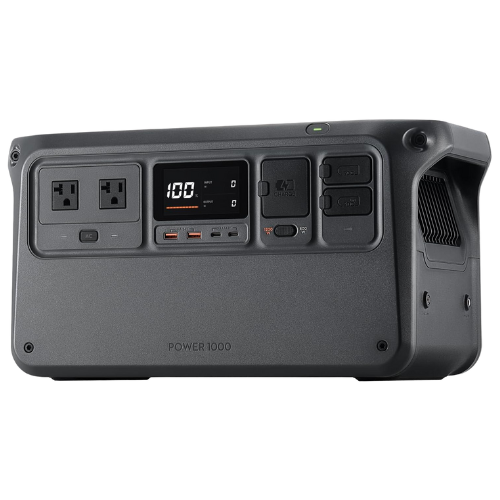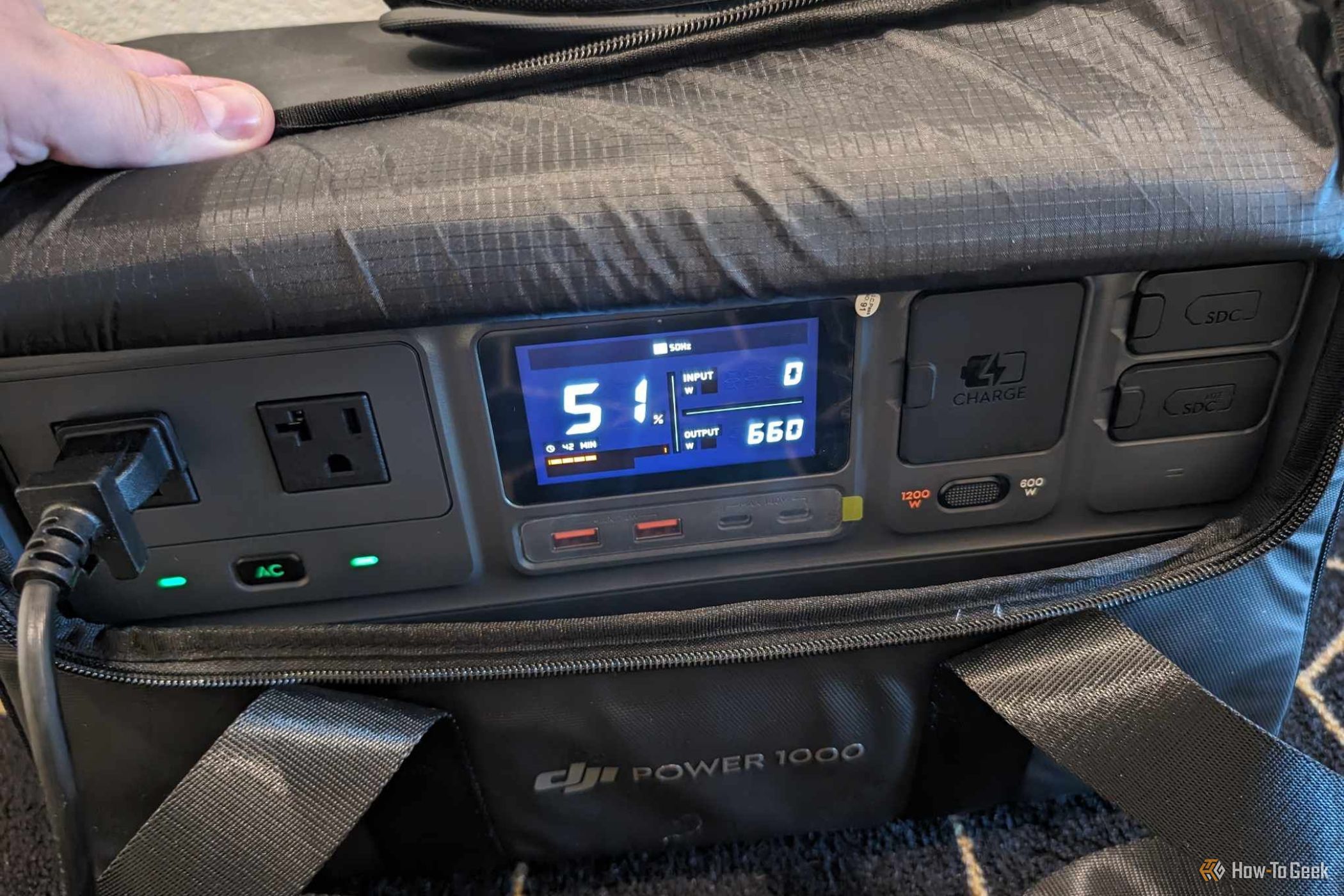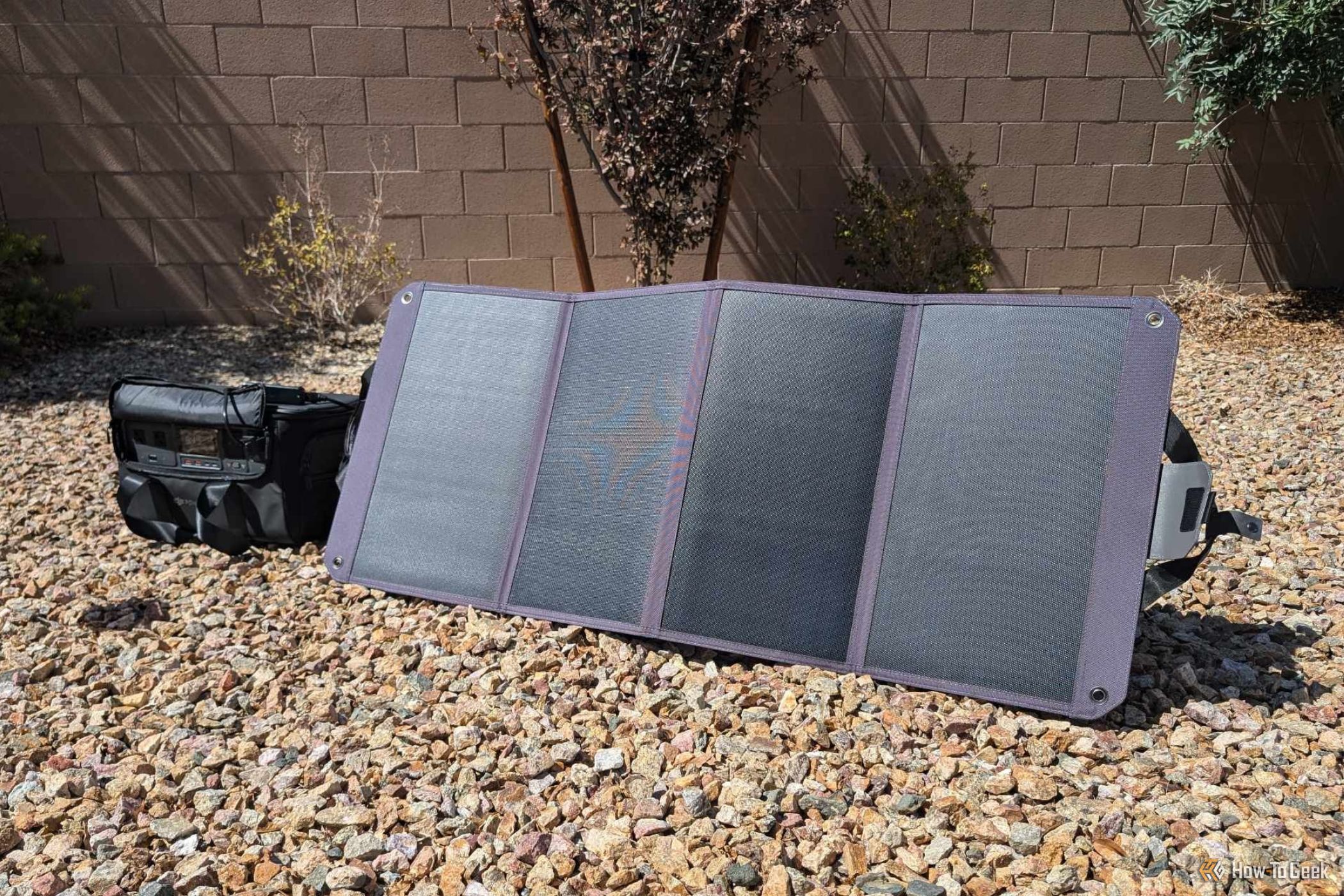Key Takeaways
- DJI Power 1000 supports charging your DJI drones with 2 AC ports & 2,200W output.
- The power station lacks additional features for emergencies but efficiently charges gadgets.
- Priced at $999, DJI Power 1000 suits drone enthusiasts but falls short as a primary backup.
Not having enough ports and outlets on the DJI Power 1000 limits all the ways it could be useful, but if nothing else, the big battery is capable of powering its drones and keeping them in the air.

DJI Power 1000
$699 $999 Save $300
DJI Power 1000 is a simple power station designed to keep DJI’s suite of drones flying for longer. Equipped with two AC ports and a 1,200W fast-charging setting, the Power 1000 is ready to extend the fun, though it falters a bit as an emergency backup battery.
- Easy to transport in carrying case
- 4,400W peak output helps in a bind
- Efficient PD 3.1 fast charging
- Near silent operation
- Very limited as an emergency device
- No built-in emergency light
- Solar panel charging was underwhelming
Price and Availability
The DJI Power 1000 retails for $999 and is currently available on DJI’s official website and Amazon. There is a smaller-capacity model, the DJI Power 500, that sells for $499 on Amazon and the DJI website.
Can a Power Station Be Too Simple?
Out of the box, DJI’s Power 1000 was unlike any other power station I’ve reviewed. It’s a simple design, with everything you need right there on the face of the unit. I was surprised to find no additional ports hidden on the sides or back like other models tend to have. DJI only included two non-USB outputs, a pair of AC outlets rated to output a maximum of 2,200W stable or 4,400W at peak.
The physical design speaks to the power station’s simplicity. After all, there’s not much opportunity for the DJI Power 1000 to outshine a similar capacity alternative like the UGREEN PowerRoam 1200 with its 13 ports. I’m not usually against a less complex design, but when it comes to a power station, I want options to keep my essentials running in an emergency.
Also, I promised my editor to replicate the test I performed on BLUETTIE’s AC200MAX. Unfortunately, two AC ports didn’t warrant dragging my Xbox, a portable monitor, and mini panini press out into the 100-degree temperatures of Red Rocky Canyon.
Fine Performance to Pair With a DJI Drone
As I ran the Power 1000 through a few tests, I realized what DJI wanted to accomplish. It doesn’t have enough outlets to be a suitable camping companion, and you won’t get too far with the 1,024W LiFePO4 battery in emergencies. However, with two solar inputs front and center, it’s clear the unit is meant for the great outdoors. As DJI is best known for its drones, I’d venture that’s exactly what this unit was designed to do—keep the Mavic 3 Pro or other DJI drone in the sky for much longer than normal.
Performance-wise, the DJI Power 1000 had no issue standing up to what I could readily stress it with. A vacuum, an ice maker, and a Meta Quest 2 consumed no more than 800W at one time. Its 1,024Wh battery drained at a reasonable rate, with the vacuum eating up power at a consistent 600W. I vacuumed one oversized living space and two bedrooms for about 30 minutes, and the station dropped from 50% to about 30%, in line with its 1,024Wh rating.
Had I had the drones this power station was clearly meant to pair with, I’d likely be pleased with how long I could stay out flying them. According to DJI, the Mavic 3 Series battery would take approximately 30 minutes to charge 85%. As the drone’s battery already has a 40-minute flight time, you could really capture a day or two worth of footage.
Or, if you’re like me, you could vacuum your entire home a few times before draining the power station. Luckily, charging it back up is relatively efficient.
Fast AC Charging With a Much Slower Solar Option
Though I couldn’t produce the power output I expected to really test the station’s stable 2,200W output, I could test the three methods of charging DJI’s portable charger. As expected, the AC adapter offered the fastest charge, topping out at 600W or 1,000W when set to the 1,200W fast-charging mode.
DJI advertises a 70-minute full charge time when set to the fastest mode. In the comfort of my home, plugged into an empty outlet, it took about 100 minutes from 0% to 100% for Standard Recharge Mode or about 85 minutes in Fast Recharge Mode. That’s pretty close to what DJI promised and isn’t bad at all. I was hoping to get closer to UGREEN’s 45-minute to 1-hour recharge, but since I wouldn’t use DJI’s station as a primary backup unit (largely due to the lack of ports), its charge time is suitable.
Once you move from AC charging, things get quite a bit slower. When I tested the Zignes 100W Solar Panel, it was a cloud-free day, and the sun was directly overhead. Still, I could only draw 60 to 65W, putting the charge time at about 3 hours. Things were even worse with the car charger, which was rated for a 100W max but barely broke 25W. I didn’t have a second vehicle to test the charger on, and I do question if there’s a fault in my car’s port.
A Mixed Bag of Features
Power stations aren’t typically big on additional features. They power things, they receive a charge, and that’s about it. Sometimes, they come with an emergency light, as they’re meant to supplement camping equipment or help in emergency situations. The fact that the Power 1000 doesn’t include this light further suggests that DJI’s focus here was keeping its drones charged.
The Power 1000 may have been missing a light, but it did come with a carrying case with zippered flaps that give access to every port and fan. The bag seems to let the station breathe well, as it didn’t overheat or get substantially hotter when left to charge outside in 100-degree heat. I’d really like to see other smaller power stations include a carrying case. They’re bulky, heavy units, and the case did make it easier to transport the Power 1000.
Should You Buy the DJI Power 1000?
If you’re looking for an emergency backup power station, there are better options than the DJI Power 1000. While its output and charge time are perfectly fine, only two AC adapters is a little ridiculous. I get that a lot of small electronics run on USB-C (and sometimes USB-A) cords, but if we’re talking about a scenario where power is completely out in your home, the Power 1000 will be insufficient.
Should you be looking to add more time to your outdoor drone activities, though, then it’s a perfectly fine unit. Whereas something like the UGREEN PowerRoam is better suited as a survival tool, despite having the same battery capacity, the Power 1000 is there to keep your gadgets charged and ready for a day of fun.

DJI Power 1000
$699 $999 Save $300
DJI Power 1000 is a simple power station designed to keep DJI’s suite of drones flying for longer. Equipped with two AC ports and a 1,200W fast-charging setting, the Power 1000 is ready to extend the fun, though it falters a bit as an emergency backup battery.




![Seven tech accessories I keep coming back to [Video]](https://techtelegraph.co.uk/wp-content/uploads/2025/05/7-tech-accessories-FI-1-218x150.jpg)
